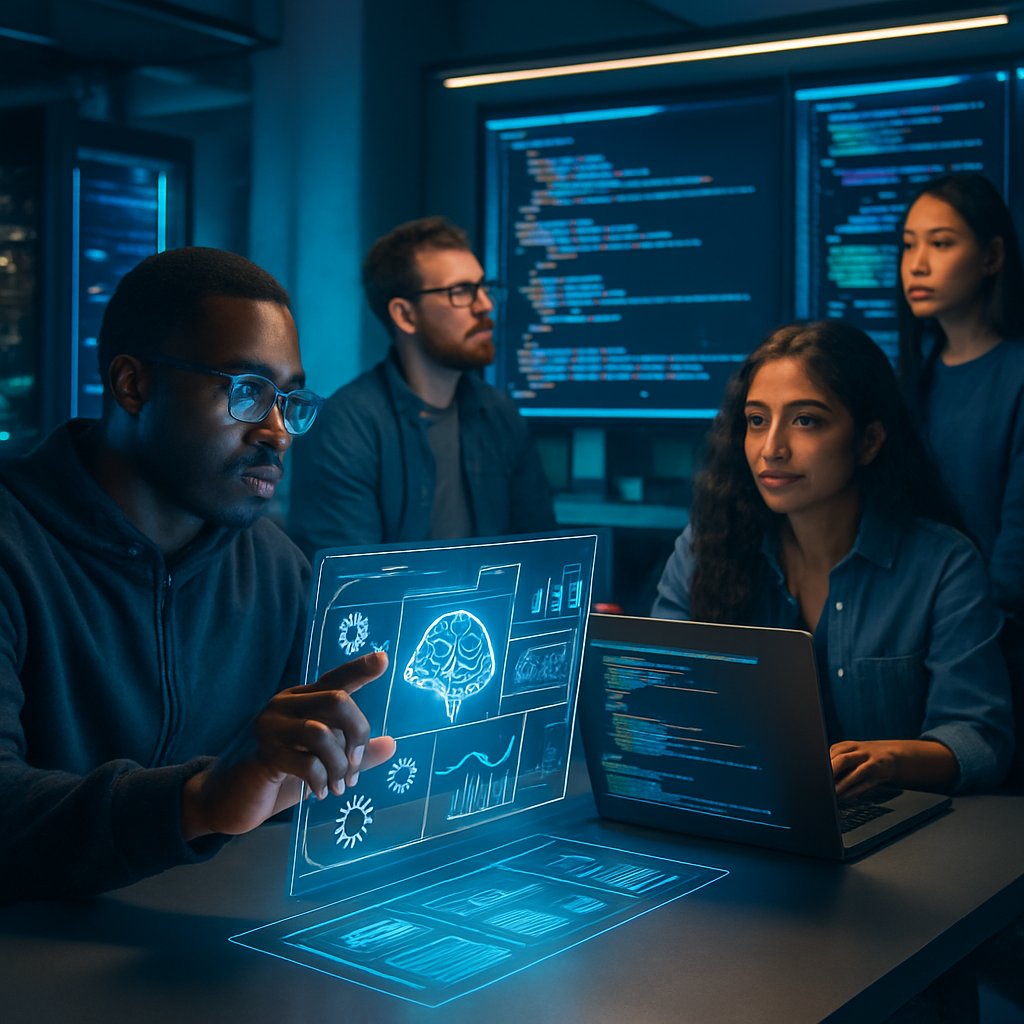How AI is Revolutionizing Software Development: Insights on Productivity, Efficiency, and Job Security
In our rapidly changing tech landscape, few topics sparkle as brightly as Generative Artificial Intelligence (AI). It’s not just a buzzword; it's reshaping industries—and the software development arena is no exception. A recent study from a team at the University of Gdańsk dives deep into the transformative effects of Generative AI on the IT sector, revealing layers of complexity around productivity, organizational efficiency, and the ever-looming question of job security. In this post, we break down their findings and explain what they mean for developers, companies, and the larger tech community.
The Rise of Generative AI in Software Development
Generative AI is characterized by its unique ability to create content and perform tasks that traditionally required human input. It can dramatically speed up coding, debugging, and even strategic decision-making—all crucial elements in the software development lifecycle. The authors of the study observed that 97% of IT professionals are currently using Generative AI tools, with ChatGPT being a leading player.
Why does this matter? Simply put, it signals a massive shift towards automation in areas where developers have historically spent countless hours. Imagine reducing a task previously taking several days down to just hours—all thanks to AI. That’s the exciting promise Generative AI brings to the table.
What Are the Impacts?
1. Boosting Productivity
One of the most striking findings is the significant boost in personal productivity reported by developers who use Generative AI. Tools like ChatGPT help developers streamline their workflow by tackling the drudgery of repetitive coding tasks. For instance, code generation, debugging, and other vital functions can be automated, allowing developers to focus on more complex problem-solving.
To paint a picture, think of it like having a smart assistant that can handle most of your routine tasks, leaving you more time for innovation and creativity. As a result, this has the potential to enhance individual effectiveness and efficiency, making teams work like well-oiled machines.
2. Enhancing Organizational Efficiency
The study also found a correlation between Generative AI adoption and organizational efficiency improvements. With AI helping manage various software development processes, teams can operate more fluidly. Companies that embrace these technological advancements tend to see smoother operations and heightened productivity across their teams.
However, there's a flip side. The same tools that provide efficiency can also lead to concerns about workflow reliance on AI’s performance. If developers become too dependent, what happens in cases of AI inaccuracies or failures? It's a valid concern that organizations must tackle head-on.
3. Job Security Concerns
A pertinent concern highlighted in the study is regarding job security. The researchers found a strong correlation between the level of Generative AI integration and employee anxiety about their job roles. While employees appreciate the productivity gains, many feel that these tools could threaten their positions.
To illustrate, consider a factory where machines start handling tasks humans used to do. Workers may appreciate the efficiency, but they might also worry about the machines taking their jobs. This study reveals that the fear of displacement is palpable; many employees fear that their roles may be under threat as automation becomes commonplace.
The Challenges of AI Adoption
While the benefits of Generative AI are compelling, the study outlines several challenges that come with its integration.
1. Inaccurate Outputs
One of the primary concerns (noted by 64.2% of respondents) was the accuracy of AI-generated outputs. The potential for AI to produce flawed code or content can lead to significant setbacks for projects, making it crucial to have robust checks in place.
2. Regulatory Compliance
As companies navigate the complex landscape of regulations, integrating AI presents compliance challenges (58.2%). They must ensure that their adoption of AI solutions adheres to industry regulations—a task that’s becoming increasingly tricky amid evolving laws around AI technologies.
3. Ethical Considerations
With great power comes great responsibility. Ethical dilemmas (52.2%) around generative AI's capabilities—ranging from bias in AI outputs to data privacy—remain significant concerns. Companies have to tread carefully, ensuring that their AI applications are not only powerful but also ethical.
Real-World Applications and Implications
So, how can organizations harness these insights effectively? Here are a few practical takeaways:
Embrace AI For Efficiency, But Don’t Dismiss Manual Work: While AI can dramatically cut down development time, human oversight remains crucial. Regularly reviewing AI-generated outputs can prevent costly errors.
Train Employees in AI Tools: Upskilling IT staff on how to use AI tools effectively will not only enhance productivity but also alleviate some job security fears. It’s essential to build an environment where employees view AI as a complementary resource, not a replacement.
Foster an Open Dialogue About Job Security: Companies should create a transparent environment where employees can voice their concerns about job displacement. Open communication could ease fears and build trust.
Stay Up to Date on Regulations: As AI technology evolves, so do the regulations surrounding it. Keeping abreast of changes and ensuring compliance should be a priority for your organization.
Key Takeaways
Generative AI is transforming the IT sector, with 97% of IT professionals adopting these tools, marking a major evolution in software development.
Productivity gains are evident, with many developers experiencing increased effectiveness due to automation of routine tasks.
Organizational efficiency is improved through AI, yet concerns around job security pose a significant challenge.
The top challenges for adoption include AI's accuracy, regulatory compliance issues, and ethical considerations, which companies must navigate carefully to harness AI’s benefits fully.
By understanding the implications of Generative AI on software development, IT professionals and businesses can leverage technology for a more productive future while being proactive about potential pitfalls. As we step into this evolving landscape, staying informed and adaptable will ensure that the integration of AI paves the way for innovation and opportunities rather than fears of dislocation.

